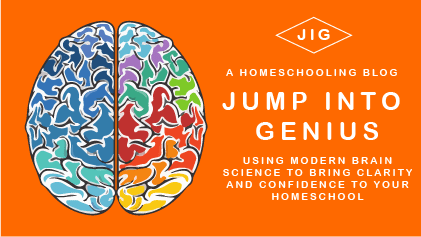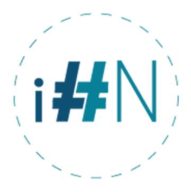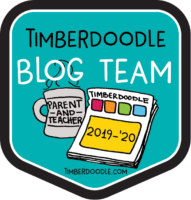I love finding fun ways to study information that needs to be memorized. My kids love games. Board games, card games, and especially video games are always in use around our house. So when I had the chance to review Vocabulary Quest, which is a video game for learning advanced vocabulary words, I was all in.
Vocabulary Quest is appropriate for homeschoolers of all styles. The word lists it contains are advanced so I would recommend it, in general, for high school students. I also think this game would be a great way for adults to keep their brains sharp and expand their own vocabulary. The program is a great way to cover the vocabulary needed to prepare for ACT and SAT test.
The game is not easy. This is good for adults and teens, we can’t cheat our way to winning these rounds. You cannot move forward in the game until you have mastered the list you are working on.
Who Tried Playing Vocabulary Quest in Our House and What They Thought
I tried the program out with several different ages/personalities of kids and also played it myself.
Elementary Kids Were Not Quite Ready for Vocabulary Quest
For the 9 and 10-year-old (4th & 5th grades) I set the program to list on the “Easy to Hard” setting. This setting starts our with shorter words. Since the program will require the student to spell the word correctly, typing it from memory within a time limit, short words are easier. However, I found even the short words too difficult for my little ones. This is because the words are still advanced and brand new to them. They have never heard them before. So I would not recommend this for elementary kids.
The Twelve-year-old loved Vocabulary Quest
First, I just want to say, my 12 year old is kinda….weird. Not every 12-year-old will love this program because it is advanced and hard. However, the program gives the child everything they need to learn and master the words. If your child is a bit perfectionistic and likes a challenge then they may be ready for the program in middle-school.
The Thirteen-year-old did not like Vocabulary Quest
This student is in eighth grade. She really is not ready for this program. She can do it, but it was hard enough that she did not want to play it. Now, since she is still in middle school, and all my kids test high in vocabulary I won’t assign her to play the game. I think in another year or two, she will be ready. So you really want to think about your child if you are considering this for a middle schooler.
High School Students - 9th and 11th grades
Now we are getting into the age group the program is designed for and I think it is an excellent fit. I would still caution that some 9th and 10th graders may find the program difficult. You can get around this by having them just work through it slowly, or you can just wait a year or two.
My 9th grader loves the program and played it more than any of my other kids. He is a creative writer, composing poems in his free time, and working on short stories and a novel. He loves playing with words and I think he enjoys learning new words so that he has more tools to choose from when he is working on his creative projects.
He also loves gaming. Vocabulary Quest is really the perfect fit for him. He will continue to play this game and it should keep him busy for some time.
My 11th grader does not like the program very much. However, I plan to make him play it at least 10 minutes a day next year. Let me explain why. My oldest can’t spell. It is a big issue. It has been a problem since he started trying to write. He knows every phonetic rule, every spelling rule, every phonogram in the books. I have used all the programs that are supposed to magically teach kids with ADD and Dyslexia how to spell. But the kid can’t spell. He reads Shakespeare for fun, but he can’t spell. I mean, words like cow and milk sometimes still come out wrong. But you cannot pass levels of Vocabulary Quest without being able to spell the words. Hence, his lack of enthusiasm for the game.
Now, eventually, I may have to give up on the dream I have of this kid being reasonably competent in the subject of spelling. But I have witnessed him overcome so many other things that I just can’t…not yet. My deadline is when he moves out of my house. I have until then to keep trying. Since I have tried every spelling program it is time to try something different. That different thing is Vocabulary Quest. (I would have him working it now but his schedule is too full, so I plan to block out the time for him to work on this next year.)
Whether or not the programs helps his brain wire itself to spell more competently, he will at least have a large vocabulary at his disposal, so it will not be time wasted.
Vocabulary Quest is Great for Adults Too
Before I move on to explaining how the gameplay works I need to tell you that this program might be worth buying right now just to play yourself. Even if you have a fairly advanced vocabulary you will probaably encounter words here you don’t know. It is also just plain good for your brain. I mean, I know a lot about the brain and have seen all those ‘train your brain’ apps on the market. But this game really makes you think and remember.
I would even recommend this for retired adults who are smart and trying to keep their brains active. Did you know that just doing a crossword a day doesn’t help much? To keep the brain really healthy we have to be learning new things and stretching to activities which seem difficult. This is why activities such as learning a new language are much more effective at preventing/delaying diseases such as dementia than just crosswords.
I plan to play through the game, even if I only have time for it once a week, just because I am a writer and expanding my vocabulary is desirable. Now, I am not a gamer at all. I get lost in most games, or die, or drive off the tracks. But this game does not require any special video gaming skills, so I can happily play it when I have a few moments. (And if you don’t think video games require skill than you have never seen me try to play!)
Things to Know About Using Vocabulary Quest in Your Homeschool
- It is not designed as a one school year program. I think this is a perk. It is designed to teach a large and advanced vocabulary and that means you don’t need to buy a bunch of levels or a new vocabulary program each year of high school.
- Kids can work independently. Really, they are not going to need you to do anything. Except maybe download the program on the computer they will use.
- Anyone in your family can play the game, it is a classic computer game. Remember the old days when you bought a game and different users could hit the ‘new game’ button to play without messing with your saved game? Yah, it works like that, which I love.
- It is not an app. Don’t think you can buy this to play on phones or tablets. It is a computer game and therefore requires a computer. We tested on both my low powered laptop and our fancy high speed gaming computers. It runs nicely on both, just takes a little longer to load the game when you first open it on my laptop. But once in the game it plays without any glitches or slowdowns on my low-powered writing machine.
- It is work. Don’t expect your kids to randomly play this in their free time. Assign it as schoolwork and put it on their schedule or list. The suggested usage is 10 - 15 minutes a day and I found that to be an effective amount.
How the Game Plays
The words are practiced in groups of five. There are four basic mini-games you can play to learn the words. These mini-games are classic ways that vocabulary is normally studied; multiple choice, crossword, matching, and fill-in-the-blank. As you work through the games the program will create a list of the words the student misses and add them to the section labeled ‘Recommended to Study’.
For additional practice your student can use the flashcards, quick test, and spelling activities. The spelling activity says the word aloud and the student has a box to type into. If they can’t remember how to spell the word they can hit the heart and the word will show up in the box…but it will disappear again when they start typing. The heart button is also available in the mini-games and final game and can be used at any time. However, if they need hit the heart for help the word will be added to the study list.
The games can be replayed to hit 100% mastery, which I highly recommend before moving on to the final game. In the final game your student will be fighting an enemy. Their chance of hitting the enemy is based of the speed and accuracy of the vocabulary answers. They will see a definition on the screen and need to type the correct word, spelled perfectly, and quickly.
You need to remember which five words you are working with, there is no list on the side to help jog your memory. This is why is a great work-out for your brain. Because although an adult might come in already knowing the five words, they still have to do the brain work of holding those five words in their working memory during this round.
After you answer the questions, the battle between your character and the enemy will take place automatically, and you will win or lose, depending on how well you answered the questions. You have to win this round before the next five words are unlocked.
Once you have won the final round for two sets of five words, you will play a round using all ten words. Thankfully, there is a reference list of words for this round, so you can glance down and jog your memory to remember which words you are working with. (I found this very helpful.)
As you play through the game you unlock better armor and weapons, which you can equip in the armory.
Like any good video game, there is a little story when you begin to play explaining your quest.
I wish there were more education games like Vocabulary Quest.
I am always looking for video games or apps that are educational. I am constantly disappointed at how few are on the market. When I do find them I am often disappointed in either the quality of the game play, or the lack of actual educational content.
Even worse, many educational games don’t seem to understand how the brain learns. I don’t need games that work against learning. For example, many games will just give the kid an answer (especially common in math fact games) after a few seconds, without any consequence. In other words, the kid knows if they just sit there for any answer they don’t know already the game will tell them and they can keep playing (without having to think). This means their own brain is not doing the work. Thinking is hard, and if there is no motivation to do it, the brain will opt-out.
To be truly educational games must have motivation to think as part of the game design, encouraging students to do the work, while still having help available when needed. Vocabulary Quest gets this right. There is a heart button to use for help whenever needed. But the when you use the heart the game will not mark that word as mastered. In the mini-games it means the word is added to your study list. In the final round in means your characters chance of hitting the enemy is reduced.
I am excited to have finally found a vocabulary game that has excellent content, an extensive list, and demands that the players brain does the work.


